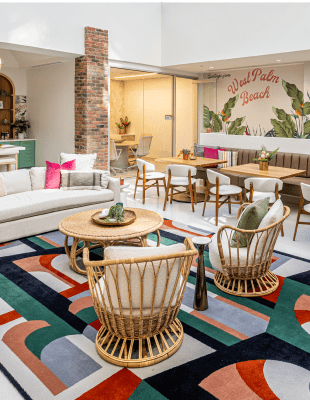In November 2020, Australia notched up a decade at the top of the global real estate sustainability ranking (GRESB).
The intensive work that our commercial real estate investment trusts (REITs) have undertaken to transform the way in which we design, construct and operate our commercial property assets in Australia has placed us in good stead for a decarbonised future.
So, when I read the Arcadis global study Supercharging Net Zero, which reinforces that we are losing the race to achieving a net-zero emissions (net zero) economy in time to limit global warming to 1.5°C, I stopped to think about what we need to do in order to exacerbate that approach and drive toward a decarbonised world.
What we essentially have is a launchpad for the next generation of development and defining and capturing the opportunities that large scale infrastructure and precinct development offers will be critical. We know that we have access to the technologies, design thinking, construction methodologies and operational approaches that are needed to develop in a decarbonised way. What we need to do from here is harness those opportunities to ensure that each mark that we make on our cities is one that will lead to a decarbonised world.
In Melbourne, Brisbane, and Sydney today we are designing precincts that will not come to full fruition for decades. For each of those precincts, there exists the opportunity to design in the needs of the future – or not. For each of those precincts we will make thousands of decisions and each one has the potential to optimise the carbon potential.
A precinct is a complex beast. A microcosm of the city around it. Many stakeholders will help form it’s potential. How then do we ensure that the precincts that we design today will optimise our decarbonised lives? Will we be able to harness the interconnected elements that form a thriving community within a precinct, and leverage the interdependencies for our decarbonised good?
I believe that we can. Just as the REIT’s have seized the opportunity to change the way in which they design, construct and operate their portfolios, we now have the opportunity to design decarbonised precincts. In doing so we will harness the opportunity to normalise what it is to live in a decarbonised city and a decarbonised world.
With each of the major rail projects in our cities, comes new stations with precincts around them, designed to optimise these infrastructure investments. With public transport at their heart and prime development opportunities around them, how we generate energy in those precincts; how we design, develop and construct; how we encourage movement around them; how we accommodate people and the needs of their lives, how we light them and mitigate the production of waste; how we produce food; how we think about the microclimates that we are creating – how we create places for people, will heavily determine how effectively we decarbonise.
With projects like Suburban Rail Loop in Melbourne, Cross River Rail in Brisbane, Western Sydney Airport Metro and many more, we have the opportunity to create the precincts of the future where life will be richer for a decarbonised approach.
So, while our global research clearly defines the challenge we are facing, the opportunities and the evidence of just how far we have come, fuels our belief that if we invest in our future precincts well, we can turn the tide.




